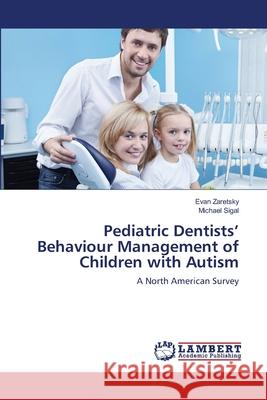Pediatric Dentists' Behaviour Management of Children with Autism » książka
Pediatric Dentists' Behaviour Management of Children with Autism
ISBN-13: 9783659168833 / Angielski / Miękka / 2012 / 108 str.
This study assessed which behaviour management techniques, BMTs, pediatric dentists are using, and find effective in treating patients with Autism Spectrum Disorders, ASD and identified influences which contributed to their use. Surveys were mailed and emailed to 1669 members of the American Academy of Pediatric Dentistry. Seven hundred eighty-nine (48.2%) completed surveys were returned. Nearly 60% of respondents treated children with ASD weekly or more frequently. Of the 23 listed BMTs, General Anaesthesia, Tell-Show-Do, Distraction, and Non-verbal Communication, were considered effective. Seventy percent of respondents were primarily users of classical BMTs. Pharmacological and classical techniques, are used frequently, but may not be effective. Time and costs limit the use of modern techniques. Cost efficiency and long-term patient management were the most influential factors in selecting a BMT; patient co-operation was the least influential. Pediatric dentists recognized a need for further education related to behaviour management of children with Autism Spectrum Disorders.
This study assessed which behaviour management techniques, BMTs, pediatric dentists are using, and find effective in treating patients with Autism Spectrum Disorders, ASD and identified influences which contributed to their use. Surveys were mailed and emailed to 1669 members of the American Academy of Pediatric Dentistry. Seven hundred eighty-nine (48.2%) completed surveys were returned. Nearly 60% of respondents treated children with ASD weekly or more frequently. Of the 23 listed BMTs, General Anaesthesia, Tell-Show-Do, Distraction, and Non-verbal Communication, were considered effective. Seventy percent of respondents were primarily users of classical BMTs. Pharmacological and classical techniques, are used frequently, but may not be effective. Time and costs limit the use of modern techniques. Cost efficiency and long-term patient management were the most influential factors in selecting a BMT; patient co-operation was the least influential. Pediatric dentists recognized a need for further education related to behaviour management of children with Autism Spectrum Disorders.











